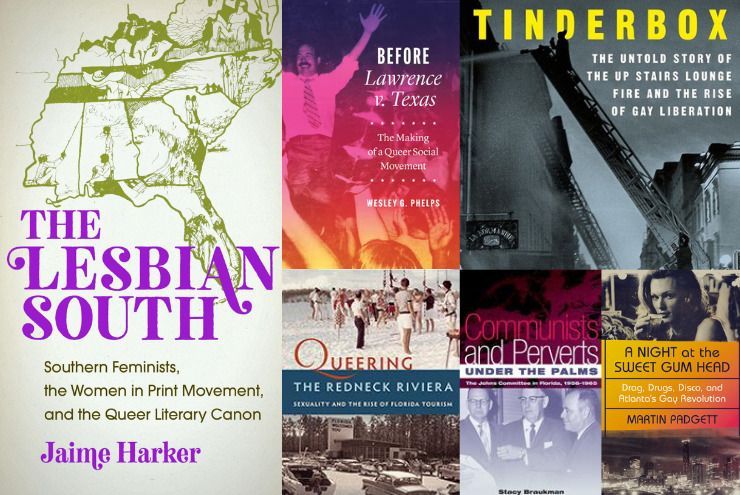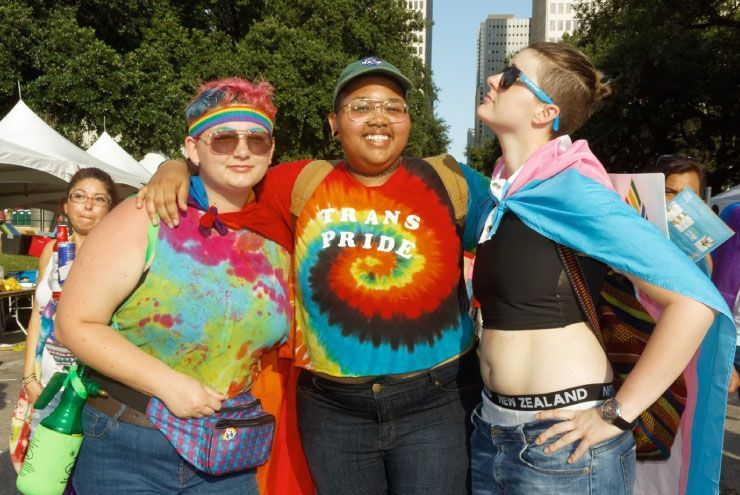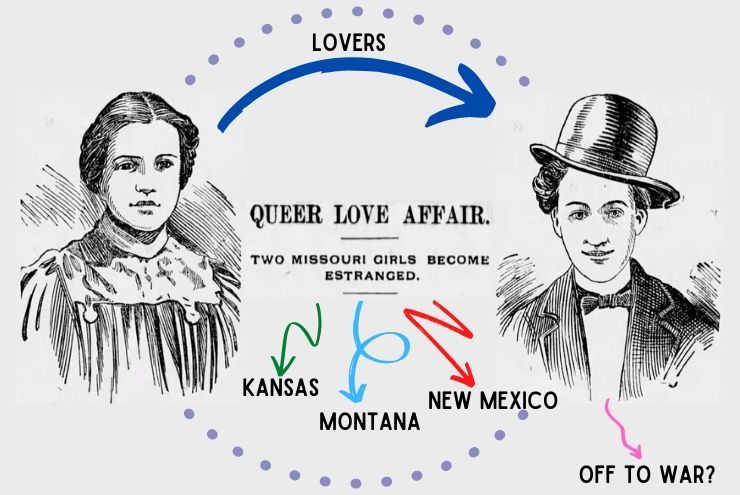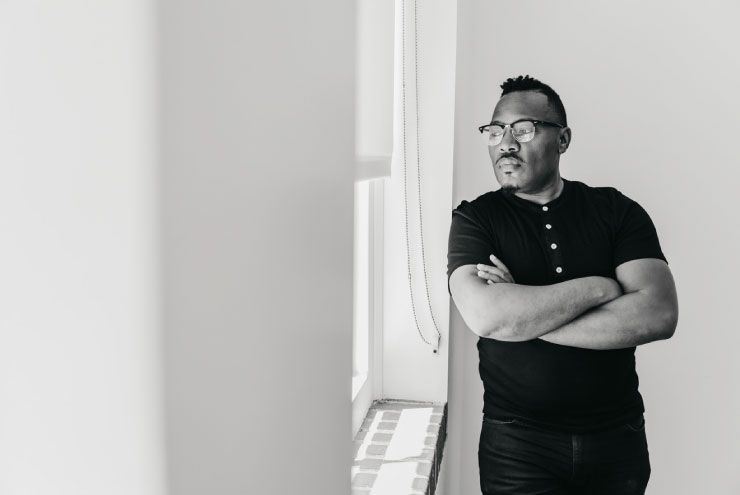By Nikita Shepard
These days, it can feel frightening to be an LGBTQ person in the South. Seems like every time we open our feeds, we find some atrocious new bill popping up in one state legislature or another, taking aim at drag performances or medical care for trans kids or what bathrooms we can use.
But it’s not our first rodeo. Queer southerners have faced hostility from state governments, police, media, and religious leaders across the region throughout the last century. Yet, they’ve never been able to stamp us out. We’ve managed to flourish in the most hostile climates, in tiny towns and big cities, from Memphis to Mobile to Miami. Even when we’ve been scapegoated, mocked, arrested, and attacked, we’ve never stopped living and loving in every corner of the South.
We know this, in part, because of the tremendous work that historians of the queer South have done over the years to excavate these hidden stories—stories that, oftentimes, the powers that be would prefer to sweep under the rug. A determined group of researchers, both inside and outside of academia, have spent the past decades patiently poring over sources, sifting through police records, recording oral histories, preserving community newspapers and personal collections, and doing all they can to make sure we never forget where we came from.
Queer southern history is relatively new as a field, and we still have an enormous amount left to learn. The 1990s marked its first flowering, with books like James Sears’ Lonely Hunters (1999), an oral history of the pre-Stonewall queer South, Daneel Buring’s study of lesbian and gay Memphis (1997), and the anthology of historical essays Carryin’ On in the Lesbian and Gay South (1997) breaking new ground. The fascinating stories and theoretical insights of John Howard’s Men Like That (1999), on the queer history of Mississippi, inspired an entire generation of scholars to dig deeper into the region’s LGBTQ past.
This second wave extended research into new corners of the region, as historians shed light on queer life in Missouri, Oklahoma, Miami, the Florida Panhandle, and beyond, as well as accounts of anti-gay repression in Florida from the Johns Committee to Anita Bryant and oral histories of Black southern gay men and lesbians.
In the last five years, a flurry of new studies of queer southern history have appeared, covering everything from LGBTQ public history in southwestern Virginia, to lesbian activism in Charlotte and Atlanta, to the queer history of carnival in Mobile, to the roots of trans activism in Texas. There’s so much out there—and still so much we don’t know about the queer past of our region.
We know you don’t have time to read every book and listen to every podcast out there. But chances are, you’re curious to know more about our history (and herstory, and theirstory).
That’s why we’re launching Historians of the Queer South, Spectrum South’s new series of articles profiling the writers and researchers who are helping to tell our stories. Each month, we’ll share a new article highlighting a scholar who we think has made a particularly important contribution to our understanding of the queer southern past. We’ll tell you a bit about their life and the journey that led them to explore our history, and share some of the stories they uncovered over their time spent digging through dusty archives or interviewing elders on front porches across the region.
We’ve got an exciting array of historians lined up, representing different time periods, areas of the South, and populations under the LGBTQ+ umbrella. Here are a few teasers:
- We’ll take a trip through The Lesbian South with Jaime Harker, a professor of English at Ole Miss who’s bringing the lesbian feminist print culture of the region in the 1970s–90s back to life.
- We’ll recount the horrifying 1973 Up Stairs Lounge fire in New Orleans and efforts to commemorate it with journalist and author Robert Fieseler.
- We’ll see what’s so queer about the Florida Panhandle with Jerry Watkins, history lecturer at William & Mary and author of Queering the Redneck Riviera.
- We’ll explore the roots of queer activism in Texas with Wesley Phelps, a history professor at the University of North Texas and author of Before Lawrence v. Texas.
- We’ll dig into the roots of the Florida state government’s (all too ongoing) legacy of homophobia and racism with Stacy Braukman’s work on the Johns Committee of the 1950s–60s.
- We’ll dance our way through a breathtaking history of drag, disco, drugs, and Atlanta’s gay revolution in the 1970s with Martin Padgett, author of A Night at the Sweet Gum Head.
And that’s just a start! Stay tuned into Spectrum South each month to check out the new articles as they drop. We’ll keep this page updated with links to each article in the series as it’s released.
If the histories you encounter here pique your interest and you want to learn more, we’ve partnered with ShopQueer.co, an LGBTQ book project founded by historian Eric Cervini, which splits profits with the queer authors they promote. Each article will include links to purchase the historian’s book on the queer South; by going through ShopQueer.co, the author will receive double the income they would otherwise receive. Spectrum South also receives a 10% referral commission when our readers shop through this link. This way, you can deepen your knowledge of queer southern history while directly supporting the people who’ve worked hard to unearth it!
With each article you read, you’ll know more about how long, rich, weird, tragic, and wonderful our history as queer southerners really is. You’ll see how we can’t separate it from the histories of Black freedom and civil rights struggles, of Latinx and Asian migration, and Native displacement and survival. You’ll see how it connects to our region’s efforts to misremember slavery and the Confederacy and memorialize that false history and the determination of today’s activists to tear down racist monuments to commemorate the past as it actually happened. You’ll see the connections to feminism and anti-feminism, to the religious right and progressive voices of faith, to small-town lives and big-city dreams.
And above all, you’ll see the enduring truth: the South has always been queer. Queerer than we could possibly imagine.
So let’s learn all we can about the history of the queer South. Let’s hope it can offer us insights into the battles with bigots we face today and inspiration to dream of a southern future that’s queer beyond our wildest dreams.
Articles published so far in the Historians of the Queer South series:
- Jaime Harker’s Lesbian Literary Renaissance (June 12, 2023)
- Robert Fieseler Remembers the 1973 Up Stairs Lounge Fire (June 23, 2023)
- Jerry Watkins on Queering the Florida Panhandle (July 14, 2023)
- Stacy Braukman on Remembering the Johns Committee (August 17, 2023)








Historians of the Queer South: Jaime Harker’s Lesbian Literary Renaissance
June 12, 2023 at 5:39 PM[…] note: This is the first installment in Spectrum South’s Historians of the Queer South series. Each month, we share a new article highlighting a scholar who we think has made a particularly […]
Historians of the Queer South: Robert Fieseler Remembers the 1973 Up Stairs Lounge Fire
June 23, 2023 at 2:06 PM[…] note: This is the second installment in Spectrum South’s Historians of the Queer South series. Each month, we share a new article highlighting a scholar who we think has made a particularly […]